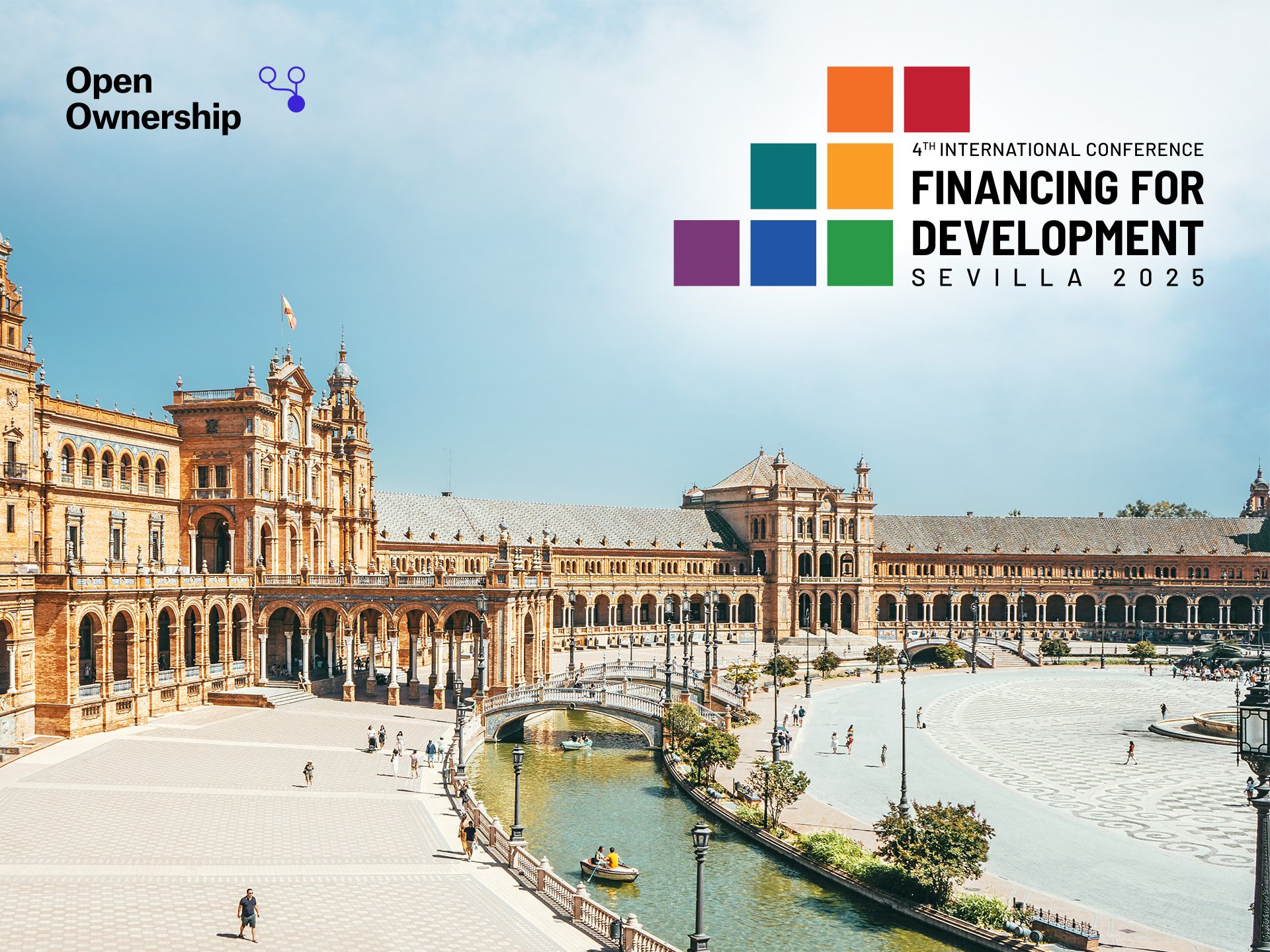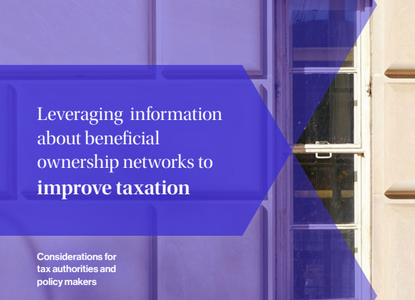Join us at the Fourth International Financing for Development Conference in Seville

There are multiple opportunities to meet up with the Open Ownership (OO) team at the Fourth International Financing for Development Conference (FfD4) in Seville, Spain this month. Read the full conference agenda.
We look forward to seeing many of you at the event.
Where to meet us
- Saturday 28-Sunday 29 June: OO will participate in the Civil Society Forum, connecting with civil society from around the world committed to advancing transparency and integrity for sustainable development (begins 14:00, 28 June).
- Tuesday, 1 July: OO and partners are hosting a breakfast event to discuss "Where next on beneficial ownership transparency? The road forward from FfD4". This is invite-only, please contact us if you would like to join us on [email protected] or [email protected]
- Tuesday, 1 July: the Civil Society Financing for Development Mechanism is hosting a side event called Walking the talk on Domestic Public Resources: From FfD4 to the UN Framework Convention on International Tax Cooperation Civil Society Financing for Development Mechanism (8:30 - 10:00am, Auditorium 3). Join us there.
- Wednesday, 2 July: OO and the Extractive Industries Transparency Initiative are co-hosting a side event on Bridging the “ODA” Gap – Mobilizing Revenues from the Extractives Sector (14:30-16:00, Room 13, FIBES (Feria Iberoamericana de Sevilla) Conference and Exhibition Centre).
- Wednesday, 2 July: The Sevilla Initiative for Accountable Service Providers* is led by UNODC, with support from partners StAR (UNODC/World Bank), OO, U4, and Transparency International. It has been endorsed by Norway, France, Guatemala, South Africa (tbc), and the UK (tbc). Join us for the Sevilla Platform for Action launch (15:00-15:30, Initiative Announcement Room, Pavillion 2, FIBES 1).
- Thursday, 3 July: OO is supporting a side event by Transparency International entitled Safeguarding domestic resources and corruption-proofing the financing for development agenda: Sevilla and beyond (12:30-14:00, Room 18, FIBES Conference and Exhibition Centre).
If you are attending the FfD4 Conference and want to connect with Open Ownership, please reach out to our Advocacy Lead Agus De Luca at [email protected].
Why does the FfD4 process matter for beneficial ownership transparency?
Knowing who ultimately owns, controls, and benefits from companies, other legal vehicles, and certain high-value assets is crucial for effective public revenue mobilisation. The FfD4 process has so far highlighted the importance of beneficial ownership transparency (BOT) to foster international tax cooperation and fight illicit financial flows. It has focused on to what extent United Nations Member States should commit to regarding BOT, namely:
- at the domestic level, by strengthening efforts to implement high-quality and effective domestic beneficial ownership registers, with standardised and interoperable information of legal vehicles and a wide range of assets;
- at the international level, by improving the exchange of information contained in these registers to tackle corruption and tax abuse.
Over the past year, OO has engaged with the FfD4 process to support a process that recognises BOT as a key reform for sustainable development:
- here, we outlined why committing to ending company secrecy is vital in the FfD4 Outcome Document;
- this emerging thinking piece outlines the key opportunities to advance the potential of BOT through FfD4 and beyond;
- this document outlines OO’s inputs to the FfD4 Elements Paper.
*The goal of the Sevilla Initiative for Accountable Service Providers is to strengthen government oversight and regulatory mechanisms and work in partnership with professional associations and industry groups to make professional service providers partners and the first line of defence in anti-corruption and AML/CFT measures, and tackle those that are enablers of corruption and illicit finance. This new initiative aims to drive accountability by establishing clearer ethical standards to guide professional conduct in high-risk activities, elevate the role of professional service providers on the global agenda and strengthen international cooperation to address regulatory gaps, shift norms, improve enforcement, and drive lasting change.



